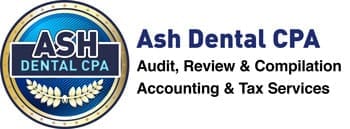Tax Planning for Dental Practices: Essential Tips to Minimize Your Tax Burden

Tax planning plays a crucial role in the financial stability of dental practices. As a dental professional, it is essential to keep up with the ever-changing tax laws and regulations, ensuring your practice operates efficiently and remains on the right side of the tax authorities. However, navigating the complex landscape of tax planning can be a daunting task for many dentists. That is why Ash Dental CPA offers comprehensive financial and business advisory services specifically designed to help dental practitioners in the United States stay informed, compliant, and strategic when it comes to their tax obligations.
In this guide, we will explore the top tax planning strategies for dental practices, providing insightful tips on minimizing your tax burden, maximizing deductions, and maintaining compliance with tax regulations. As dental practice financial experts, our objective is to help you better understand the various elements of tax planning, enabling you to make informed decisions that best suit your practice’s financial goals. By implementing these strategies, dental practitioners can take full advantage of the potential savings and set their practices up for long-term success.
Navigating the complex world of tax planning can be overwhelming, especially considering the unique circumstances of dental practices. Whether you are a solo practitioner, a partner, or a dental practice owner, it is vital to stay up-to-date with the latest tax regulations and best practices to avoid costly mistakes and potential penalties. This guide aims to address the most common questions, concerns, and recommendations that dental professionals need to comprehend to efficiently manage their practice’s financial obligations.
With ever-evolving tax laws and regulations, Ash Dental CPA is dedicated to providing dental practitioners with the knowledge and resources needed to stay compliant while strategically managing their tax commitments. So let’s delve deeper into the world of tax planning for dental practices, as we uncover the insights and strategies that foster financial stability and growth for your dental practice. From understanding tax deductions to implementing proactive tax planning measures, let’s embark on your path towards proficient tax management.
Tax Planning for Dental Practices: Essential Tips to Minimize Your Tax Burden
1. Understand and Maximize Deductions
One of the most effective ways to reduce your tax burden is by taking advantage of tax deductions available to dental professionals. These deductions can significantly decrease your taxable income, resulting in lower taxes owed. Some of the key deductions to consider include:
A. Business Expenses: Dental practices can deduct ordinary and necessary business expenses, such as rent, utilities, office supplies, and advertising. Ensure you maintain accurate records of all expenses and consult a tax professional to help identify any additional deductible expenses.
B. Equipment Purchases: Section 179 of the Internal Revenue Code allows dental practices to deduct the full cost of qualifying equipment purchases up to a certain limit in the first year of use. This can lead to significant tax savings while facilitating practice improvements.
C. Retirement Plan Contributions: Contributions made to retirement plans, such as a 401(k) or SEP IRA, are tax-deductible. Establishing a retirement plan for your dental practice not only reduces your tax liability but also encourages long-term financial security for you and your employees.
2. Utilize Tax Credits
Tax credits provide another opportunity to decrease your tax burden, as they directly reduce the amount of tax owed. Dental practices should explore available tax credits, such as the Work Opportunity Tax Credit (WOTC) for hiring individuals from targeted groups or the Healthcare Tax Credit for providing health insurance to employees.
3. Maintain Accurate Recordkeeping
Proper recordkeeping is essential for efficient tax planning and ensuring compliance with tax regulations. Accurate records allow for easy identification of deductible expenses and credits, reducing the likelihood of errors that may lead to penalties. Implementing a robust recordkeeping system helps in:
A. Tracking Income and Expenses: A meticulous record of your practice’s income and expenses will expedite tax preparation and ensure accurate reporting of these items on your tax return.
B. Monitoring Deductible Expenses: Maintaining detailed records of deductible expenses, such as employee wages, office supplies, and equipment purchases, will streamline the tax filing process and minimize the risk of overlooking any potential deductions.
C. Preparing for Audits: In the event of a tax audit, accurate and complete records will facilitate a smoother audit process and substantiate claims made on your tax return.
4. Work with a Dental Practice Financial Expert
Effective tax planning strategies require not only a comprehensive understanding of tax laws and regulations but also knowledge of the unique circumstances faced by dental practices. Partnering with a dental practice financial expert like Ash Dental CPA offers several advantages:
A. Customized Tax Strategies: A financial expert specializing in dental practices can provide tailored tax planning strategies designed specifically for your practice, ensuring that you take advantage of all potential savings.
B. Stay Updated on Latest Regulations: Tax laws, deductions, and credits are subject to frequent changes. Working with a financial expert ensures you remain up-to-date with the latest tax regulations that affect dental practices, allowing you to implement timely tax planning strategies.
C. Assistance with IRS Audits: In the event of an IRS audit, having a financial expert on your side can be invaluable. They can assist with audit preparation, represent you during the audit process, and advocate for your practice’s best interests to minimize potential penalties.
Conclusion
Efficient tax planning is vital for the financial stability and growth of dental practices. By understanding and maximizing deductions, utilizing tax credits, maintaining accurate recordkeeping, and working with a dental practice financial expert, you can minimize your tax burden and optimize your practice’s financial performance.
Ash Dental CPA is a dental accounting firm that is committed to providing dental practitioners with the knowledge and resources needed to navigate the complex landscape of tax planning, fostering long-term financial success and stability for your dental practice. Embrace these tax planning strategies, and take a step towards a more prosperous future for your dental practice.
